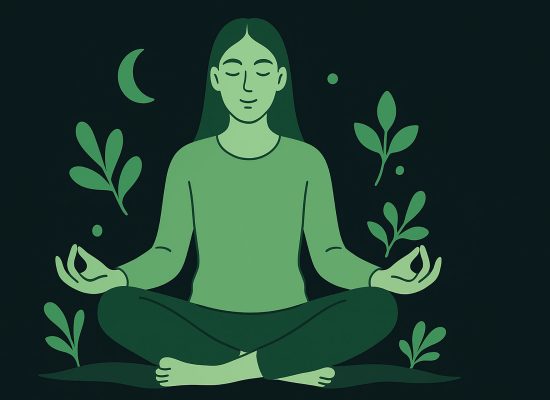During times of high stress and political turmoil, practicing meditation for social change can help reduce conflict by fostering compassion. Mindfulness for social change encourages us to cultivate greater self-awareness and resilience, allowing us to navigate uncertain times with a more balanced and empathetic perspective.
Navigating Post-Election Division & Stress
Have you noticed yourself feeling more tense since the election? According to the American Psychological Association, 77% of Americans report that the future of the nation is a significant source of stress in their lives, particularly due to concerns about the economy and the U.S. presidential election. In addition to the election, global issues such as wars, famine, and other crises are contributing to rising stress levels.
In the United States, we are also experiencing a time of deep division. Many people have reported political polarization leading to the loss of close personal relationships, including the end of friendships. This heightened sense of uncertainty, combined with the emotional toll of losing connections, can contribute to more severe mental health concerns such as anxiety, depression, and grief.
Using Meditation to Cope with Anxiety, Depression, & Grief
During times of high stress and uncertainty, meditation can be an effective tool to cope with anxiety and grief, helping to improve mental health and emotional well-being. Studies show that meditation significantly reduces symptoms of anxiety and depression, promotes emotional regulation, and helps individuals navigate through grief and major life changes with greater resilience. By learning how to focus on the present moment, meditation for social change allows us to cultivate a sense of calm and acceptance for challenges we are currently experiencing.
Meditation As A Social Justice Tool
At first glance, social justice and meditation might seem like unlikely allies—one is often driven by passion, while the other is centered on peace. However, meditation for social change is a powerful tool to foster respectful dialogue, create a collective sense of peace, and develop compassion even during challenging times. Meditation for peace can help ground individuals and communities, encouraging a mindset of compassion and understanding. Here are five ways you can use meditation to promote social change and foster world peace:
1. Meditation for Mindful Activism
Mindfulness for social change encourages you to connect with your values and stand up for what you believe in. The yoga principle of ahimsa stands for non-violence, inviting us to use our right to protest, vote, and engage in activism peacefully. By aligning these efforts, you can create positive change and foster an environment where social justice and peace work together.
2. Meditation for Collective Healing
Meditation fpr peace offers a powerful way for communities to come together, especially during times of uncertainty. Practicing together fosters a sense of connection and shared healing, helping us feel supported and less isolated. A lack of community or feelings of social isolation can significantly contribute to depression, making it crucial to unite during challenging times. A community that embraces mindfulness is better equipped to foster kindness, stand up for what they believe in, and maintain confidence and resilience in the face of adversity.
3. Meditation to Reduce Bias
Meditation can be a powerful tool in becoming open-minded to different perspectives. By practicing mindfulness, we can observe our thoughts without judgment, increasing self-awareness and recognizing our innate biases. In today’s world, social media often creates an echo chamber, reinforcing our existing beliefs and limiting exposure to differing viewpoints. Meditation for social justice offers an opportunity to step away from the constant influx of information creating cognitive overload, allowing us to take a more objective approach to the world. This approach not only helps us challenge our own biases but also encourages empathy, leading to more inclusive and meaningful connections.
4. Meditation to Stay Present
If you find yourself falling into the trap of catastrophizing and spiraling into worst-case scenarios, meditation for social change is a great way to ground yourself. It helps bring you back to the present moment, allowing you to manage your emotional responses in a healthier way. By staying open to difficult emotions and allowing yourself to fully feel them, you can support your mental health in the long term.
5. Meditation for Empathy and Mindful Conflict Resolution
As political turmoil increases strain and conflict in relationships, meditation offers a valuable tool for learning effective conflict resolution. If you’ve been struggling with family members or friends who hold differing beliefs, you are not alone. Meditation for social justice encourages us to view conflict not as a barrier, but as an opportunity for growth and understanding. You can practice Siddha Meditate’s conflict resolution meditation solo or together with the person you’re in conflict with, using the practice to guide you through exercises that foster empathy and reconciliation.

Cultivating Compassion Through Meditation
Building a Compassionate Future, One Meditation at a Time
Meditation has been shown to foster compassion, encouraging people to take action when others are in need. Have you ever noticed how the presence of others can influence your response in situations where someone needs help? You may be influenced by the psychological theory of the bystander effect—a phenomenon suggesting that people are less likely to help when others are present.
Research by Paul Condon and Dave DeSteno of Northeastern University, along with Gaelle Desbordes of Massachusetts General Hospital, has shown that meditation can reduce the bystander effect. In their study, participants with little or no meditation experience were assigned to eight-week meditation classes.
The results were striking: 50 percent of those in either meditation group offered their seat to someone in need, compared to only 15 percent of non-meditators. This study provides compelling evidence that meditation can increase compassionate responses in social situations, demonstrating its power to foster empathy and altruistic behavior. Through regular meditation, we can all cultivate a more compassionate and active response to the needs of others, ultimately contributing to a more caring society.
Loving-Kindness Metta Meditation
If you’re feeling inspired to put this study into action, a wonderful way to start cultivating more compassion and loving awareness is by practicing Siddha Meditate’s Loving Kindness Meditation.
This practice teaches you how to create more harmonious relationships by first directing love towards yourself. Through positive phrases and affirmations, you’ll cultivate love not only for yourself but also for loved ones, neutral individuals, and even those with whom you may have conflicts. This practice helps release burdens, foster forgiveness, and nurture deeper connections.
Use Siddha Meditate for World Peace
If you feel inspired to use meditation for world peace, try Siddha Meditate’s 7 day free trial to start your meditation journey today! Using mindfulness for social change is a great way to cope and make a positive difference in your community. You can visit our mindfulness meditation page to practice mindful conflict resolution, enhance self-awareness, and deepen compassion for others.







